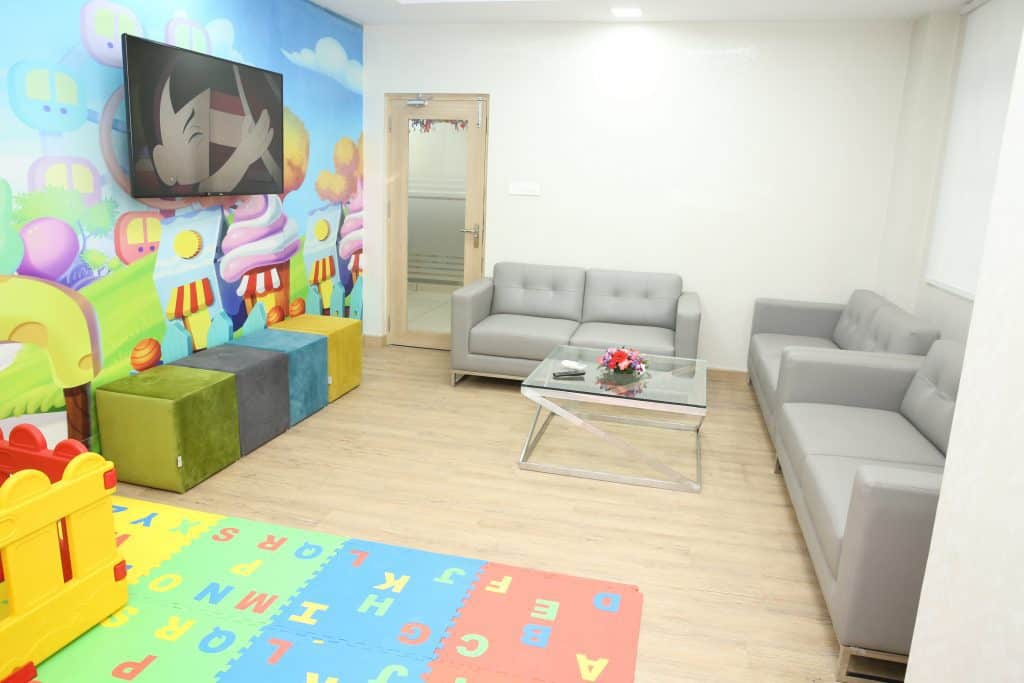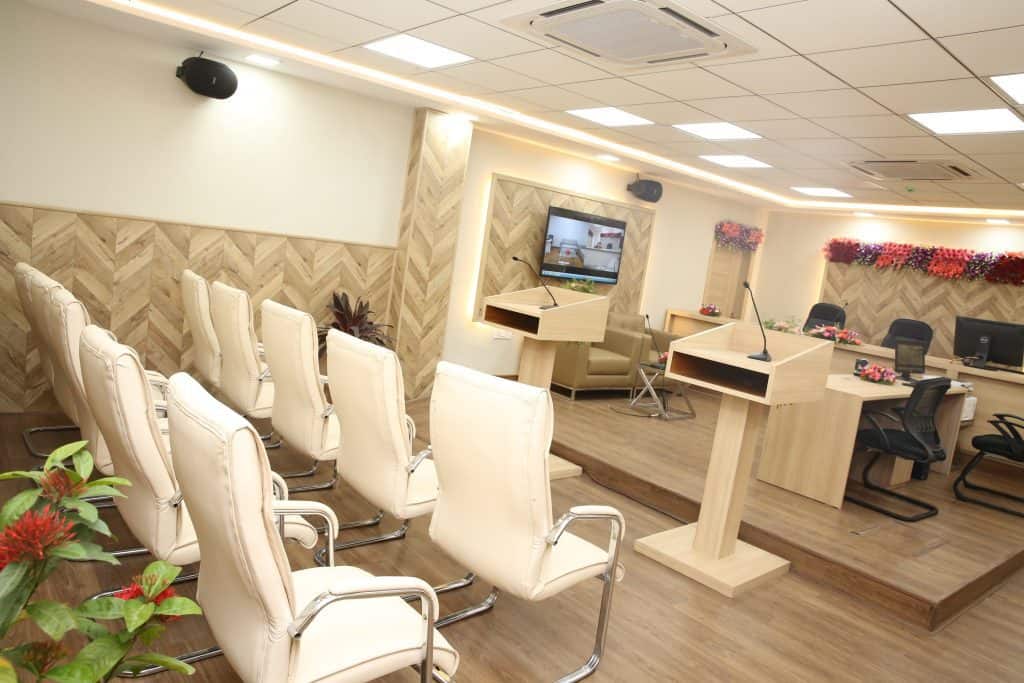This article is part of a special series: Safety of women in Indian cities |
The brutal rape and murder of a young veterinarian and the subsequent police encounter deaths of all four accused in the crime brought Hyderabad into the national headlines for all the wrong reasons. Women in Telangana’s capital face the same safety and security problems that affect women all across the country—harassment, assault, violence in public and private places. But the Telangana police have taken some steps to provide speedy assistance to women in trouble.
In an interview to Citizen Matters, Swati Lakra, IPS, IGP Law & Order and In charge of Women’s Safety Wing of Telangana state, talks about the various steps the police have taken to help women in distress. An IPS officer of the 1995 batch, Swati heads the SHE teams (#SafetyforHerEnsured, a brainchild of the Chief Minister of Telangana, K. Chandrashekar Rao) to tackle all types of sexual harassment. The recipient of the distinguished Humphrey Leadership Award, Swati has been instrumental in facilitating a safer, more secure and healthier environment for the women and children of Telangana state.
Excerpts from the interview:
What are the helplines set up in Telangana state for women in distress?
On helplines, we do not want to overload citizens with multiple numbers. Although we are popularising the use of alternate non-emergency numbers on social media and website, 100 is the centralised emergency Helpline number for anyone in immediate need of help. Also, 112 is a number provided by the Central government across the country, which is available and getting established. But we are evangelizing 100 for all immediate, emergency calls locally as of now. In addition to 100, every district has a local, non-emergency WhatsApp number.
We’ve been hearing about multiple apps related to women’s safety. Can you share more details about them?
The market is flooded with different types of apps. For any app to be truly effective, it still needs to be linked to the Police Response System, so it seems relevant to directly use HawkEye, which is a mobile app by the Telangana Police. HawkEye is inbuilt to make women travel safely.
Hyderabad Police has taken the lead in the planning and implementation of measures for Women’s Safety during their local transit within the city limits. What have been the main points of consideration in this process?
There are two things of utmost importance related to Women’s Safety that we have facilitated to help ease their mobility:
- If they enable HawkEye app on their mobile, we can track a lady with their permission until they safely reach their destination. As soon as a contact is made with our app, (either directly through HawkEye or through any other app that maybe linked to our Police Response system) the concerned person is immediately connected to our call centre. Thereon, we can closely track the caller during their transit.
- Emergency access to police helpline – Our app, HawkEye also has an offline SOS button. If this is pressed in case of an emergency, it will still connect offline to our call center for immediate response. They can alternatively dial 100 to immediately connect to our Police Response Team.
What specific measures have been implemented in the utilisation of Nirbhaya Funds for Hyderabad?
Nirbhaya Fund is a corpus setup by the Government of India in 2013 to support initiatives by the government and NGOs working towards protecting the dignity and ensuring the safety of women in India. The Ministry of Home Affairs (MHA) has taken the responsibility to collect and disburse the funds for various projects being taken up under the Nirbhaya Scheme. Telangana state is also one of the recipients of the funds under the Emergency Response Support System (ERSS).
Eight cities across the country, including Hyderabad, have been identified under the Safe City projects scheme. Under the Nirbhaya Scheme, INR 282.14 crores is earmarked for Hyderabad (for the 3 commissionerates, Hyderabad, Secunderabad & Rachakonda). Setting up of CCTV cameras in public transport systems, etc. are some of the initiatives that have been taken up by the Telangana police under this project. Surveillance vans are also being mobilised. These vans can be parked at any place so the surveillance of possible perpetrators can be done more efficiently by the police.
We are also focusing on the upgradation of technology being used for women’s safety. Dial 100, which is the Citizen’s Support Helpline initiative is also being further strengthened with the Nirbhaya Funds.
The Government of Telangana is working at upgrading the tools and equipment of the Forensics Science Laboratory in Hyderabad, which is being funded through the Safe City Project from the Nirbhaya Funds. This is to ensure that Forensic Lab (FSL) reports are cleared more quickly. This facility not only caters to Hyderabad city’s requirements but under the Safe City project, cases from rural areas are also being taken up. For DNA testing, the cases are already being sent to Hyderabad from across the country.
Cyber Crime Prevention against Women & Children (CCPWC) is another area of major focus. The funds for setting up the infrastructure for the BHAROSA centre in Hyderabad and Vikarabad was enabled from the Police Funds. The recurring expenses for the Hyderabad BHAROSA centre are being borne by the Women & Child Safety department. The operational expenses for the Vikarabad centre have been taken up by the Collector. Three more centres are coming up in Hyderabad under the Nirbhaya Funds scheme. Out of these, one will be in old city, another in Cyberabad and the third in Rachakonda.
Also, 30 Counselling Centres for domestic violence victims are also being readied.
How has Bharosa helped women and child survivors of violence?
Bharosa is an integrated multi-pronged one-stop Support Center to provide a slew of police, medical, counselling, legal and prosecution services for women and children who are victims of violence and sexual abuse. Either they or their family can get immediate assistance from multiple specialised services under a single roof for their relief, rehabilitation and protection as per the requirements.
Bharosa was implemented in 2016 after a lot of research. The Supreme Court has acknowledged that good practices are being followed. They have identified Bharosa, Hyderabad, as the best model in the country. As per the judgement of the Hon’ble Supreme Court Judges, Madan B. Lokur and Deepak Gupta in the Nipun Saxena and Ors. Vs. Union of India (UOI) and Ors. on December 11, 2018, the one-stop center BHAROSA in Hyderabad is to be used as a model for establishing other similar one-stop centres in the country.
Are any awareness programmes being run by the city police for the public as well as for the police?
We are running multiple Awareness Programs for school children, the public and also for police.
Sensitization of police personnel cannot happen overnight. It can only happen through continuous and periodic training. To this effect, we have also made it a point to include a session on gender sensitization in every police training course. We are trying our utmost to bring about relevant change in both the attitude and approach of our police personnel. We also conducted a workshop on the Protection of Children from Sexual Offences (POCSO) Act, 2012 for Police officers.
At the same time, attitudinal changes have to come from the public too.
Along with the state Departments of Education and Women and Child welfare, we have been reaching out to boys in the age group of 3-6 years. Some curriculums have been developed to start gender sensitization from an early stage. We are studying workable curriculum patterns that can be replicated in Telangana to bring about attitudinal and behavioural changes.
What activities are being taken to bring anti-social elements in rural areas to mainstream?
Along with the Department of Women & Child and Panchayati Raj, the Panchayat Secretary, SERP members (Society for Elimination of Rural Poverty, Department of Rural Development), Educational Rural Program and ASHA workers (Accredited Social Health Activist, MoHFW) are working at the ground level to identify anti-social elements in every village. Once identified, SHE teams of Telangana state will be concentrating on them to bring them back to the mainstream. This could be in the form of creating employment opportunities, involving them in sports or providing mental training to bring about much-needed behavioural and attitudinal changes.
Can you shed more light on the interactive methods that are being adopted by the Telangana Police to train men and boys in urban areas?
In addition to the rural programs, SHE teams also identify men and boys who are loitering near bus stands and other public places in the cities to provide them gender sensitization training.
Along with the educational department, e-learning courses, games and other interactive measures are being introduced for 7-18-year-old school boys, either as a part of their main academic curriculum or as extracurricular activity.
Are you also focusing on training women and girls?
We have always focused on training women and girls. We speak to some of them at bus stops and other public places to better understand and address their concerns. We are also working on implementing e-learning training related to women’s safety, cybercrime and child sexual abuse. The e-learning course will be of 15-20 minutes duration. If the learner is able to score even 8 out of 10, we award them with a learning certification. Along with the education department, we are also trying to introduce this as a course within the school curriculum.
What have been the areas of focus for SHE teams in Hyderabad?
We are focused on broadening the scale and reach of the SHE teams across Hyderabad to reach 100 percent of the public so as to give confidence to the women to approach them and also act as a deterrent for men. Although women comprise almost 50% of the population, at present we have only 5% women police representation in the state. This is a very skewed percentage. However, the Telangana government has implemented 33-1/3 % reservation in the Police force for women from the constable to the DSP level.
Aims of the SHE teams:
|
Could you elaborate on the Child Friendly Courts?
After the Bharosa center was established, a unique Child Friendly Court was also set up by the Telangana police in consultation with the Telangana High Court on April 7, 2018. A departure from the norm, this child court is physically located away from a regular court premise. This court aims for speedy disposal of cases registered under POCSO (Protection of Children from Sexual Offenses) Act. Under normal conditions, if a child or woman affected by violence and sexual abuse goes to a child court attached to a regular court, they may be exposed to re-victimization. The objective of this initiative is to de-link a child court from a regular court to protect the interests of the victim and the witnesses.
One of them has been setup in Hyderabad and another is being established in Vikarabad. They will be replicated shortly across the state.
Some of the highlights of the Child Friendly Court infrastructure are two separate entrances for the victim and the accused, a child-friendly waiting area, video-linkage room, child-friendly court hall, Judge’s chamber and a separate room with a one-way mirror for the accused. As per the POCSO Act, the accused has the right to hear and see the child through the one-way mirror but the victim is unable to see the accused and therefore, feels less intimidated and fearful during a court hearing.
Of late, there is a high-level of global awareness on safety and privacy of online data. How has Telangana Police addressed this concern?
We have installed all the critical requisites for data security, including setting up of fire walls for both our mobile app and website.
We have been hearing recently about Transit Dorms. Could you shed more light on this initiative by the Hyderabad Police?
Apart from the above projects, funds have been allotted for Transit Dorms in Hyderabad under the Safe City Project. These are essentially shelter homes for women travellers and are reasonably priced. When a woman visits the city from a rural area, she may be in need of a short-term shelter, which may range from one day to a couple of days. Although the Transit Dorms are operationally outsourced, they are closely supervised by the city police.
Are SHE toilets in the city functional?
SHE toilets are unique and modern electronic toilets (e-toilets) exclusively for usage by women. Several SHE toilets have been planned across the city, especially in areas with maximum footfalls. Greater Hyderabad Municipal Corporation (GHMC) has installed a number of them in busy areas like Charminar, NTR Gardens, Tank Bund, Ameerpet, Golconda, etc. The new ones that are coming up will be supported under the Safe City Project.
A wide cross-section of people look at you as their role model. What would you like to share with citizens?
Girls need to be empowered. We cannot generalise and say that a city is either safe or unsafe, it is the situation which is safe or unsafe. A woman or girl can be within the four walls of her home and still be unsafe.
We need to keep them prepared. Self-defense techniques are good to help a person escape a potentially dangerous situation. A girl or woman need not be an expert at Judo or Karate. If she has basic self-defence training, in the case of an emergency, she will have the confidence to get away to a safer location. This could be either by shouting out aloud or even kicking and punching the miscreant in the right place. She should also try to press her phone SOS button or call 100.
It is important to be confident and not get scared. Women do have a sixth sense – listen to that sixth sense and try to come out of a risky situation without any kind of delay.
Public can also visit our website for more information on relevant safety measures for women.
As a responsible citizen, what would you like to share with others at a personal level?
Unfortunately, we live in a society where women are not respected. Every woman has faced some kind of harassment. It is high time that as a society we fight it. Harassment is not an issue only concerning women – it affects the entire family. Whether it is a boy or a girl child, why discriminate between them – why give a boy more freedom or more slack than his sister, that is why boys start behaving the way they do. Men should be equally gender sensitive.
We need to understand that public spaces are as much for women as it is for men. Our constitution provides equal access to men and women, whether one is traveling for studies, work or to any other place and at any time of the day or night. To bring about the much-needed change, we as a society have to be responsible collectively.



Informative, pertinent and timely!